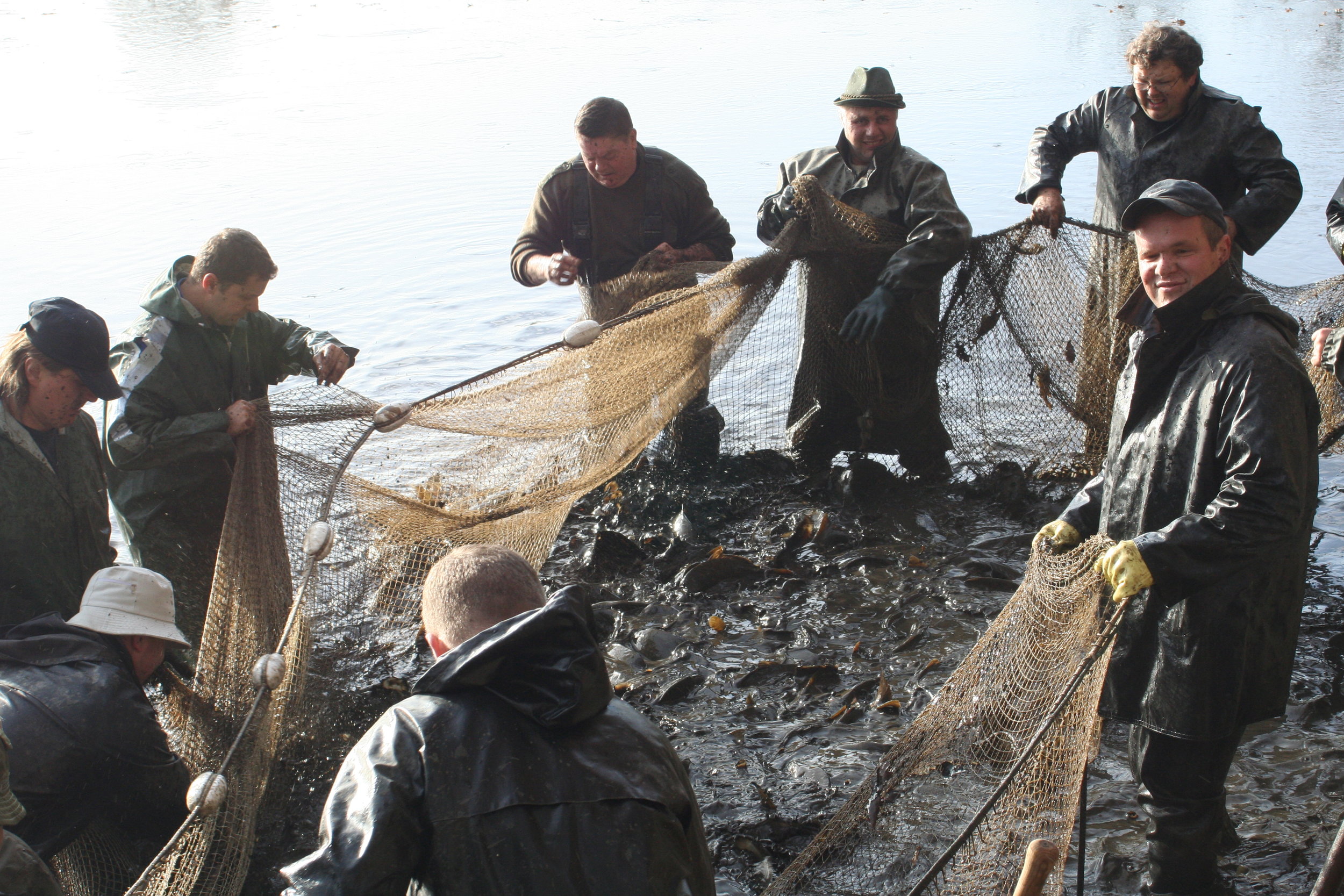A thousand years of fishing
/Pale, autumn sunlight sifts through the morning mist, a thread of weak yellow in the grayish brown landscape..
Image by Arie Farnam
My hands are nearly frozen, gripping the side of a jolting wagon and a child between my knees. And this is just the beginning.
But there are thermoses of hot water for tea and bottles of rum for grog and if anyone will be warm it will be me. My task is usually tending the small cookfire on the dike.
It's the annual fish harvest in South Bohemia and we're on our way to the ponds, bundled up for several hours of frigid work. There is no snow yet and only a mild layer of frost but everything is wet and will get wetter. The land here used to be a marsh after all.
Each year we are pressed into service by my husband's family on the last weekend in October to help fish out the ponds that hold the winter's supply of carp and pike. It's a tradition a thousand years old. The men dress in hip-high rubber boots and old farm jackets and wade out into the muck of the partly drained ponds with giant nets spread between them. Then at the grandfather's signal, they form a line and heard the fish in to the center.
Image by Arie Farnam
I am always struck by the odd beauty of this ritual. It is all about mud, cold and hard, dirty work. But the fact that the techniques used hundreds of years ago are still the most effective makes it magical. And the realization that the five-hundred-year-old network of fishponds and water channels has made humans an integral part of the ecology of this land make it beautiful.
When the fish are drawn into a wriggling, silver-flashing mass in the center of their circle, the fishermen lift them with scoop nets, while others sort them into huge drums of water--one for the smallest immature fish, one for those that will be left to grow another year and one for the full-sized fish, which will be kept in clear water for a month to ensure that they don't smell like mud. Then they'll be served for holiday dinners.
Image by Arie Farnam
Dozens of people come to the fish harvest, many to work for a free fish, many just to watch from the dike. I hand out grog and tea. This used to be my mother-in-law's job and I was only her helper. This is the first year since she passed on.
My children run wild in the pack of local children, splashing through the shallow black water and spattering themselves with that peculiar stinking black mud of the South Bohemian bogs that is nearly impossible to wash out of clothes and off of skin. But such family traditions are worth more than a set of clothes.
I warm my reddened hands by the fire and watch as the sun emerges from behind the heavy clouds, briefly setting the autumn trees around the pond ablaze with color.














